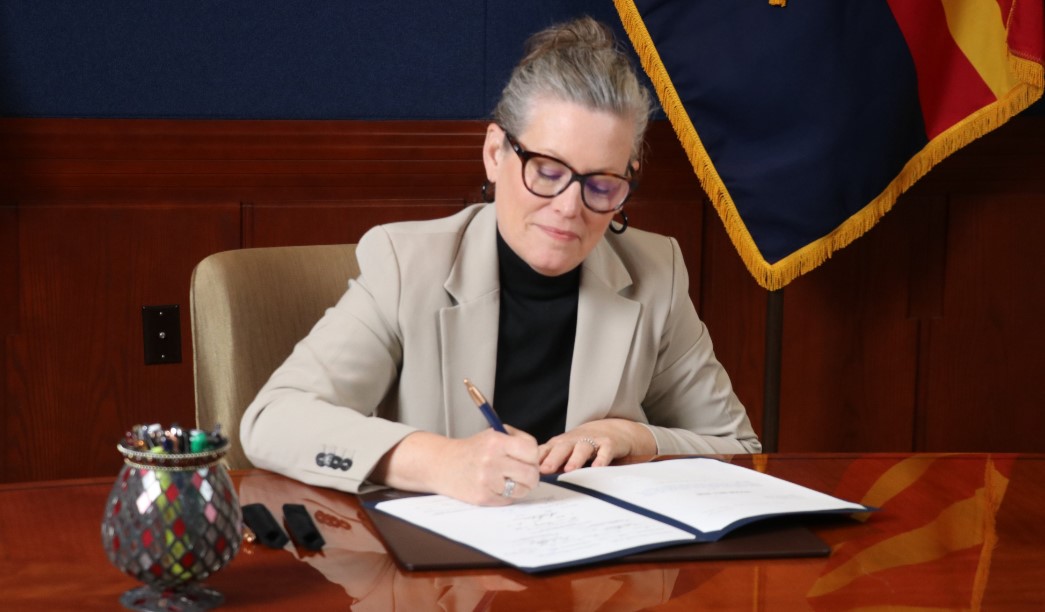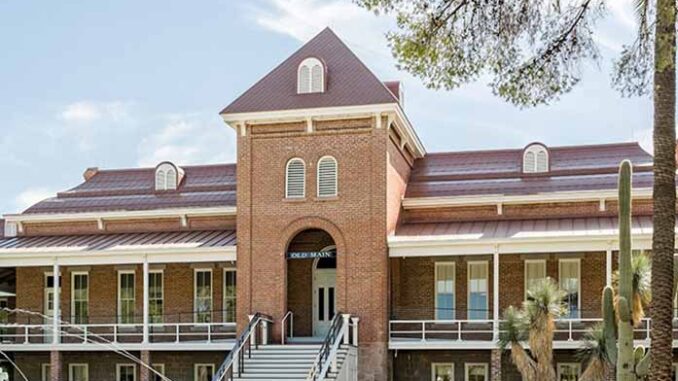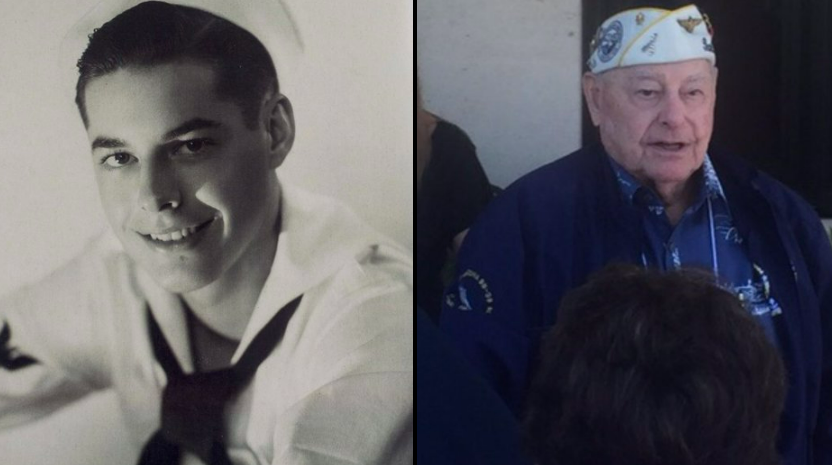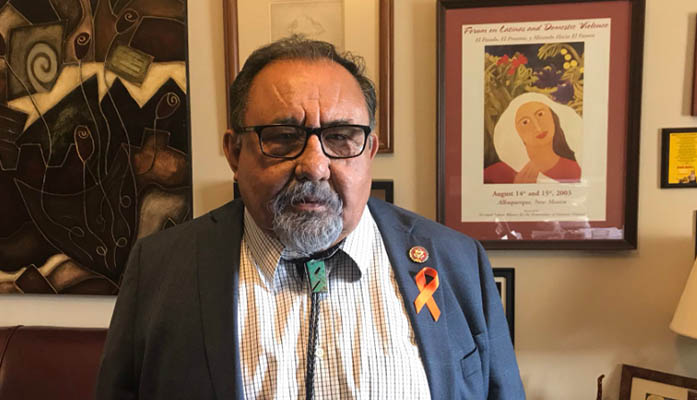
by Daniel Stefanski | Apr 6, 2024 | Education, News
By Daniel Stefanski |
A bill to help educate Arizona students about the history of communism met its demise in the Governor’s Office.
On Tuesday, Governor Katie Hobbs vetoed HB 2629, which would have “establishe[d] November 7 of each year as Victims of Communism Day and require[d] the State Board of Education to create a list of recommended resources for mandatory instruction on the topic in certain public school courses” – according to the Arizona House of Representatives’ summary. The bill was sponsored by House Speaker Ben Toma.
In her veto letter back to the Speaker, Hobbs opined that his legislation was “too prescriptive in dictating instructional requirements to education professionals.” She pointed to a bill signed into law in 2022, which was sponsored by State Representative Nguyen, as the “appropriate process to modify academic content as it ensures that changes to standards are evaluated by experts in a holistic manner across grade levels, and the public is provided with ample opportunity for review and input.” The Democrat governor “strongly urge[d] the State Board of Education to take action to begin the process of updating the Social Studies Standards and address the issues covered in this legislation.”
Hobbs did promise to “proclaim this November 7 as Victims of Communism Day in sharing the spirit of this Legislation.”
Speaker Toma was outraged by the governor’s action. In a statement following the veto, he wrote, “I find Governor Hobbs’ veto of HB 2629 both indefensible and personally offensive. Having lived under the oppressive regime of communist Romania, I have firsthand knowledge of the devastating impact these ideologies have inflicted on billions worldwide. Communism’s legacy is marked by death, oppression, deprivation, economic suffering, and the shredding of all that binds families and communities together. It is a history that must be remembered and taught, not dismissed, ignored, or vetoed.”
Toma added, “The Governor’s veto and the limited bipartisan support for HB 2629 reflects a deeply concerning trend where the education of our students on fundamental historical truths is becoming a partisan issue. This should not be a matter of politics, but a matter of ensuring our future generations are well-informed, critical thinkers who appreciate the freedoms they have. Sadly, Governor Hobbs has denied Arizona students a crucial opportunity: to learn from the past and understand the sacrifices of those who suffered under communist regimes.”
The speaker concluded his statement by addressing Hobbs’ suggestions and promise, saying, “While I respect the Governor’s gesture to revise our state’s Social Studies Standards, I simply do not trust her administration’s ability or willingness to accurately reflect communism’s legacy. The academic requirements must be codified in statute, as my bill would have done.”
Daniel Stefanski is a reporter for AZ Free News. You can send him news tips using this link.

by Elizabeth Troutman | Apr 5, 2024 | Education, News
By Elizabeth Troutman |
The University of Arizona is getting a new president.
University President Robert C. Robbins told the Arizona Board of Regents on April 2 that he will step down by the end of his current contract as soon as his successor is ready.
“After significant consideration and personal contemplation, I informed the regents this morning that I will step down as president of the University of Arizona after fulfilling the terms of my current contract,” Robbins said in a statement. “When a new president has been appointed by ABOR and she or he is prepared to start sooner than the end date of my contract, I will ensure a smooth transition to my successor and step aside earlier.”
Robbins has served as president since 2017. He has been under fire over the last six months because of the university’s $177 million deficit.
“The University of Arizona has and will continue to tackle the more pressing challenges of our time,” Robbins said. “And it is time to begin to think about what is next for the university, and I will continue to serve the institution with pride and work with ABOR to ensure a smooth transition at the appropriate time.”
Arizona Board of Regents Chair Cecilia Mata said the board plans to start a national search for the 23rd president of the university soon, and Robbins will serve as president until his successor is ready to start. His current contract expires June 30, 2026.
As president, Robbins oversaw the creation of the new Center for Advanced Molecular and Immunological Therapies, as well as the largest fundraising campaign in the university’s history, Fuel Wonder, which has raised $2.2 billion toward the $3 billion goal.
“The University of Arizona has a long-standing reputation as an elite public research university – one with a rich tradition of service and a leader in advancing new frontiers and making remarkable discoveries,” he said.
Robbins said this is a difficult but necessary decision. He said he has no doubt the university is in good hands.
“It has been a true honor to lead the University of Arizona for so many years, particularly during a time of transformational change in higher education and with challenges in the world around us,” he said. “I am proud of the many advancements we made together in elevating the institution, by enhancing the student experience; by attracting and retaining world-class faculty and staff; by increasing our research funding and philanthropy; by achieving significant milestones in science, astronomy and medicine, among many other disciplines; by engaging our indigenous tribes and rural communities; and by improving the lives of Arizona residents and the global community.”
Mata said the board appreciates Robbins’ dedication to UA’s mission and values.
“He has built a legacy of commitment to student access and success, as well as advancement of the university’s land-grant mission,” she said. “President Robbins implemented a strategic plan focused on the opportunities and challenges presented by the Fourth Industrial Revolution. His keen ability to weave together the biological, digital and technology sectors to further advance the mission of the university has led to exceptional accomplishments.”
Elizabeth Troutman is a reporter for AZ Free News. You can send her news tips using this link.

by Daniel Stefanski | Apr 5, 2024 | News
By Daniel Stefanski |
Arizona’s Democrat governor has vetoed legislation that would have strengthened parental rights in the state.
On Tuesday, Governor Katie Hobbs vetoed HB 2183, which would have “entitle[d] parents with the right to receive from a healthcare entity equivalent access to any electronic portal or other healthcare delivery platform for their minor child” – according to the overview from the Arizona House of Representatives. The bill was sponsored by State Representative Julie Willoughby.
Hobbs was brief in her veto letter to House Speaker Ben Toma, writing, “The measure as written could put the health and safety of vulnerable Arizonans at risk.”
Willoughby, a Republican, was greatly disappointed by the governor’s action. In a statement released after the veto, the first-term lawmaker said, “I am deeply dismayed by Governor Hobbs’ decision to veto HB 2183. This was important legislation designed to assist Arizona families, particularly those with children suffering from chronic diseases, access vital medical records, which are often required for arranging specialty follow-up appointments, surgeries, or consultations with out-of-state specialists. The governor’s veto means that families will continue to face unnecessary hurdles in obtaining the critical information they need, precisely when they need it most, especially during urgent health crises. This decision not only undermines the welfare of vulnerable families but also impedes their access to necessary healthcare information.”
According to Willoughby’s press release, her bill would have increased the protections afforded to parents in the Arizona parents’ bill of rights by “guaranteeing parents’ equal access to healthcare delivery platforms like online medical portals to care for their minor children.”
Though upset with the final outcome of her proposal, Willoughby made sure to thank her legislative partners. She added, “House Majority Leader Leo Biasiucci and Representative Selina Bliss have been remarkable in supporting this bill and I’m grateful for their teamwork on the bill.”
Daniel Stefanski is a reporter for AZ Free News. You can send him news tips using this link.

by Daniel Stefanski | Apr 4, 2024 | News
By Daniel Stefanski |
Past and present Arizona public officials paid their respects to the passing of an American hero.
Earlier this week, the final living survivor of the USS Arizona, Lou Conter, passed away. The Navy Lieutenant Commander was 102 years old.
After news broke about Lieutenant Conter’s death, the Arizona State Senate held a moment of silence in his memory.
Former Arizona Governor Jan Brewer marked the death with a post on her “X” account, writing, “Today, Lou Conter, the last survivor from the USS Arizona, passed away at the age of 102. Join me in offering a prayer for Lou, his loved ones, and for all the men and women who have risked and given their lives to preserve freedom.”
Maricopa County Attorney Rachel Mitchell added, “So grateful for his service – and the service and sacrifice of so many others.”
Former Arizona legislator Kate Brophy McGee stated, “A humble man who spoke always of his fellow service men who did not make it that day. Rest in peace.”
State Representative Travis Grantham said, “Rest In Peace sir.”
State Senator Janae Shamp posted, “Thank you for your service to this great Nation, sir. Set sail home to Him.”
Representative Quang Nguyen wrote, “Fair winds and following seas to the last survivor of the USS Arizona.”
Daniel Stefanski is a reporter for AZ Free News. You can send him news tips using this link.

by Daniel Stefanski | Apr 4, 2024 | News
By Daniel Stefanski |
Arizona legislative Republicans are requesting the state’s governor to take action to protect water and wastewater systems from cyberattacks.
On Tuesday, the Arizona State Senate Republican Caucus called on Governor Katie Hobbs “to take swift action to protect Arizona’s critical infrastructure from adversary nations seeking to unleash harm on the United States.”
The demand from the lawmakers follows a letter from the White House to state governors, warning of “the impending threat of cyberattacks.”
In that letter, which was signed by the Administrator of the Environmental Protection Agency and the Assistant to the President for National Security Affairs, the White House identified two of those “recent and ongoing” threats. The first was from “threat actors affiliated with the Iranian Government Islamic Revolutionary Guard Corps.” This threat, according to the letter, has “carried out malicious cyberattacks against United States critical infrastructure entities, including drinking water systems.”
The second threat was from “The People’s Republic of China state-sponsored cyber group known as Volt Typhoon.” This adversary, per the letter, “has compromised information technology of multiple critical infrastructure systems, including drinking water, in the United States and its territories.”
Senate President Warren Petersen issued a statement in conjunction with his Caucus’ call to the governor, saying, “Water is vital to lives and livelihoods. It’s concerning the Governor has yet to share any information with the Legislature, or the public, on this matter. What’s even more concerning is at a recent stakeholder meeting on a completely separate issue, a representative from the Arizona Department of Emergency and Military Affairs expressed to our lawmakers no knowledge of this warning from the White House.”
According to the Administration’s communication, these cyberattacks “have the potential to disrupt the critical lifeline of clean and safe drinking water, as well as impose significant costs on affected communities.”
Petersen also shared his thoughts on what the governor should do in order to protect the state from these cyberattacks. He wrote, “I encourage her to prioritize the safety and wellbeing of our citizens by taking steps to protect Arizona’s critical infrastructure from enemy nations who are a known threat to our state and country. This includes signing our legislation crafted specifically to mitigate these threats, such as SB 1403, SB 1340, and SB 1123.”
SB 1403, sponsored by Senator Janae Shamp, would “make it generally unlawful for specified foreign principals to purchase, own, acquire by grant or devise or have any other interest in (hold) real property” – according to the Arizona House overview.
SB 1340, sponsored by Senator Frank Carroll, would “prohibit a publicly managed fund from holding an investment in a foreign adversary, a state-owned enterprise of a foreign adversary, a company domiciled within a foreign adversary, or any other entity owned by or domiciled in a foreign adversary; or investing or depositing public monies in a bank that is domiciled in, or has a principal place of business in, a foreign adversary” – according to the summary from the Arizona House.
SB 1123, sponsored by Senator Wendy Rogers, would “prohibit a business or governmental entity in Arizona from entering into an agreement involving critical infrastructure if certain criteria apply.”
The letter from the Biden Administration officials requested the help of state governors “to ensure that all water systems in your state comprehensively assess their current cybersecurity practices to identify any significant vulnerabilities, deploy practices and controls to reduce cybersecurity risks where needed, and exercise plans to prepare for, respond to, and recover from a cyber incident.”
Daniel Stefanski is a reporter for AZ Free News. You can send him news tips using this link.

by Staff Reporter | Apr 3, 2024 | News
By Staff Reporter |
Rep. Raúl Grijalva, (D-Ariz), announced his cancer diagnosis on Tuesday.
The District 7 congressman, 76, issued a press release on his illness the day after April Fool’s Day. Grijalva didn’t disclose the specifics of his diagnosis, such as whether it was fatal. The congressman clarified that he would maintain his seat through treatment, which he has already begun.
“This diagnosis has been difficult to process, but I am confident in the vigorous course of treatment that my medical team has developed, and I’ve begun my journey to fight this cancer,” said Grijalva.
Grijalva discovered his cancer after seeking medical treatment for a persistent cough, initially diagnosed as pneumonia.
Grijalva was first elected to Congress in 2003, and has held his seat since then. The congressman serves as the top Democrat on the House Natural Resources Committee, and also sits on the Education and Labor Committee.
Grijalva is also the chair emeritus of the Congressional Progressive Caucus and maintains membership with the Congressional Hispanic Caucus.
During his 20 years in Congress, Grijalva has introduced 344 bills, 10 of which became law:
HR 4881, the Old Pascua Community Land Acquisition Act, directing the Department of the Interior to take tribally owned lands in Pima County into trust for the benefit of the Pascua Yaqui Tribe of Arizona, and made into part of the Pascua Yaqui Reservation. The act allows gaming on the land taken into this trust.
HR 2030, the Colorado River Drought Contingency Plan Authorization Act, requiring the Department of the Interior to carry out the Colorado River Drought Contingency Plan submitted to Congress on March 19, 2019, by Arizona, California, Colorado, New Mexico, Utah, and Wyoming.
HR 507, the Pascua Yaqui Tribe Trust Land Act, holds in trust for the tribe all right, title, and interest of the U.S. in and to approximately 20 acres of federal land from two parcels, one of which was owned by the Tucson Unified School District. The lands held in trust under this act prohibit gaming, as well as the forfeiture or abandonment of any water rights from these lands.
HR 3319, allowing the Pascua Yaqui Tribe to determine the requirements for membership in that tribe. The tribe expanded its membership with the perks of federal services and benefits to any with Pascua Yaqui blood enrolled by the tribe.
HR 3739, amending the Arizona Water Settlements Act to modify the requirements for the statement of findings. The amendment makes the Arizona Water Rights Settlement effective as of the date the Secretary of the Interior publishes in the Federal Register a statement of findings that specified conditions apply. These conditions included the judgment and decree attached to the Tohono O’odham settlement agreement approved in state court.
HR 5857, naming a USPS facility in Tucson as the “Morris K. ‘Mo’ Udall Post Office Building.”
HR 1075, designating a U.S. Customs and Border Protection Port of Entry in Douglas, Arizona as the “Raul Hector Castro Port of Entry.”
HR 794, the Colorado River Indian Reservation Boundary Correction Act, declared the reservation boundaries to be defined by the Robbins Survey of 1875 and the Harrington Resurvey of 1912. These surveys included 16,000 acres known as the La Paz lands. The act reversed a 1915 executive order excluding those lands from the survey. The land within this trust was exempted from gaming.
HR 327, allowing binding arbitration clauses to be included in all contracts affecting land within the Gila River Indian Community Reservation.
HR 326, amending the Yuma Crossing National Heritage Area Act of 2000 to adjust the boundary of the Yuma Crossing National Heritage Area and for other purposes.
Over the past few years, the long-serving congressman has made headlines for his consistent dismissal of the border crisis as an issue. Grijalva most recently skipped out on a hearing to address the border in his district. The hearing was arranged by the subcommittee of the committee in which he serves as a ranking member.
Grijalva disregarded the border hearing as an ulterior means of scapegoating immigrants.
The congressman also praised President Joe Biden’s administration following the president’s State of the Union, especially in regard to the border.
“Trump and Republicans remain fixated on the southern border and chose to block bipartisan immigration reform for the sake of campaign politics,” said Grijalva. “It’s clear the American people have benefitted from the leadership of President Biden and his commitment to defending the freedoms and values essential to American democracy.”
AZ Free News is your #1 source for Arizona news and politics. You can send us news tips using this link.






